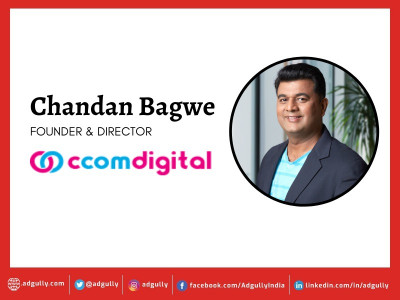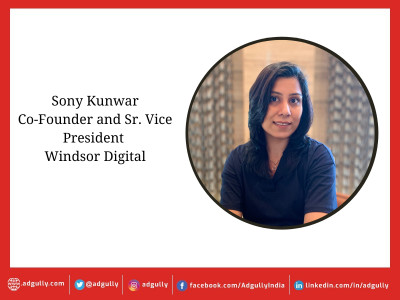Phigital Marketing to Redefine Future Brand Strategies
Authored by Dr. Anupama Gadiraju, Professor KL University, Hyderabad.
Virtual reality is yesterday’s story, as digitalization is opening new and unprecedented avenues for businesses to grow. Augmented reality is already in vogue with A-Commerce walking hand in hand with Ecommerce. The digital fever however is taking a new turn to culminate with the physical aspects of Marketing and is evolving into Phigital Marketing. ‘Lets get Phygital’ is the buzz-word these days, as Brands strive to bring traditional Physical marketing methods to be complimented with Digital experiences.
‘Phigital’ literally is defined as Physical + Digital. It is an interactive and engaging means of building and enhancing customer experience. Technology has been constantly blurring the boundaries between physical and digital worlds, and the generation Z is hooked to this phygital world that is a combination of the physical as well as the digital experiences providing the customer with personalized yet standardized in-store and/or online shopping experience.
What are the drivers for the phigital marketing? Well, India is amongst top two countries digitally on many dimensions of digital adoption. With about 1.2 billion enrolled in unique digital identity programme, India is fast emerging as a potential digital economy with an ample room to grow. The digital adoption index covering the three elements of Digital Foundation-comprising of speed, cost and reliability of internet service, Digital Reach which includes the number of mobile devices, app downloads, and data consumption, and Digital Value made of consumer engagement online through chatting, tweeting, shopping, or streaming, is constantly rising. Since 2014, India exhibited a rise in its absolute score by 90 percent (McKinsey & Company) From 483 million internet users In 2018, India is projected to grow to 666.4 million internet users in 2023. (Source: Statista) Despite the untapped potential, India already stands second amongst online markets globally. The potentiality makes it imperative for digital aspirations of businesses to reach new heights.
Is Phigital generation the Gen next? By all means! So powerful is this phigital wave that generation Z is labeled as the Phigital generation, and is said to be the main reason for seamless incorporation of digital experiences into physical manifestations of the Brand.
The phigital generation is usually ascribed some characteristics. It is observed that phigitals are friendly and comfortable with both digital and real worlds. They are extremely mobile friendly and tech-savvy. They don’t see technology as an enhancer or an add-on, but consider it as an indelible part of the entire brand experience. It is very important for them that the brand they choose has a digital element to it to prove its approachability and ease of operation, and it is also equally important that it manifests itself physically as the basis of trust and safety for its customers.
For example, increasingly traditional centers of education like universities are providing for online portals and mobile connectivity, for each and every aspect of the learning experience of their students, right from admissions to certification, which is a combination of physical process like regular contact classes at the campus, with an equal digital engagement like online examinations and assessments. From touch screens to magic mirrors, phigital marketing is making its presence felt by making the brands stand apart from clutter while pushing them ahead of competing brands. Today’s brands are not expected to be the best in their category alone. They are supposed to be ultra-personalized and tuned to the users so much so that they have a relevant presence across all touch points.
Tomorrow’s brands on the other hand, are expected to provide a personal touch by interactive and engaging interactions with the brand with the help of digital enablers. Weather APIs, and geo-location trackers are such digital enablers that help in taking these experiences to altogether a new level. The latest among these innovations are personal AI assistants or chat bots. Be it retailing, banking, education or fashion, brands are slowly, but surely, galvanizing towards digital interventions to support the physical aspects of the experiences. Free Wi-Fi, Augmented Reality, location-based coupons, QR-code scanning and virtual-tour guides have all been used not only to spice up the customer’s physical experience, but also to and keep them loyal and coming back for more.
How phigital branding can be enabled? First and foremost, brands in order to be phigitally successful need to be optimized for the smart phone. The phigital generation has access to digital touch points, which are being extensively used to compare, evaluate as well as purchase brands. However, to instill the trust and balance between physical and digital dimensions brands need to be as adept as in their physical presence as well. It is found that most phigitals would like to order online, but pick up the order from a show room or vice-a versa.
Wide offline manifestations are also considered as the future of brands. For example Lenskart is already making waves in Indian eyeware industry with its new app Lenskart Lite which is 80% lighter than the app, allowing for easy downloads and for customers to browse choose and place an order even without internet after an initial internet-enabled download.
Phygital Brands are expected to create a lasting and impactful experience. Apart from being tech savvy, they are expected to touch the emotions of the customer in a very candid manner. The Home court, the concept store of Adidas in Chennai, allows its customers to test the shoes in a football arena, and get their names printed on the jersey and the football. Phigital Brands are expected to be ultra-personalized and provide the customer with an unmatched experience fitting the physical scope of the brand’s experience with its digital functionalities. Vanhuesen Style studio allows the body scanner to measure the exact size of the customer and suggest garments accordingly, thereby giving a shot in the arm of the brand’s in-store experience.
Phigital brands are also expected to be customized in their touch points and are expected to cater to the rising need for ‘try before you buy’ through digital previews, and assuage the hunger for ‘best deals by creating digital assortments and arranging for complimentary in-store experts for advise and counsel. Brands need to engage in wide-spread and engaging storytelling to attract the phigitals. Virtual tour guides as well as digital menus are the requisites to provide the customers with a feel of what is in store for them.
Brands like Revlon, Caratlane and Lakme allow for their customers to digitally try their merchandise without physically visiting the stores so that they can order online. In all, phigital brands need to exhibit the versatility of both physical and digital worlds without hindering the customer’s overall experience with them, and yet compliment the customer’s personality with their manifestations whenever, wherever and however required.
The Challenges to Phigital Branding in India…It is said that 80% of the firms consider going digital as absolute priority, however only half of them are integrated to the effect. Digital integration needs skills and digital expertise that need fine tuning, especially in the wake of large-scale migration of expert workforce to foreign countries for better opportunities. Indian brands also have a larger base of diversified population to address, with several pockets of unique tastes and needs, which would be a challenge when need to be addressed for customization and ultra-specificity of the brand to meet the customer’s needs. However, with the trend pointing more and more towards the customers’ seamless and engaging experience in purchase, use and recycling of products, phigital marketing is here to stay.
About the Author
The author is a PhD in branding and is an academician, consultant and thought leader with over two decades of experience in teaching, training, consulting and institution building.
















Share
Facebook
YouTube
Tweet
Twitter
LinkedIn